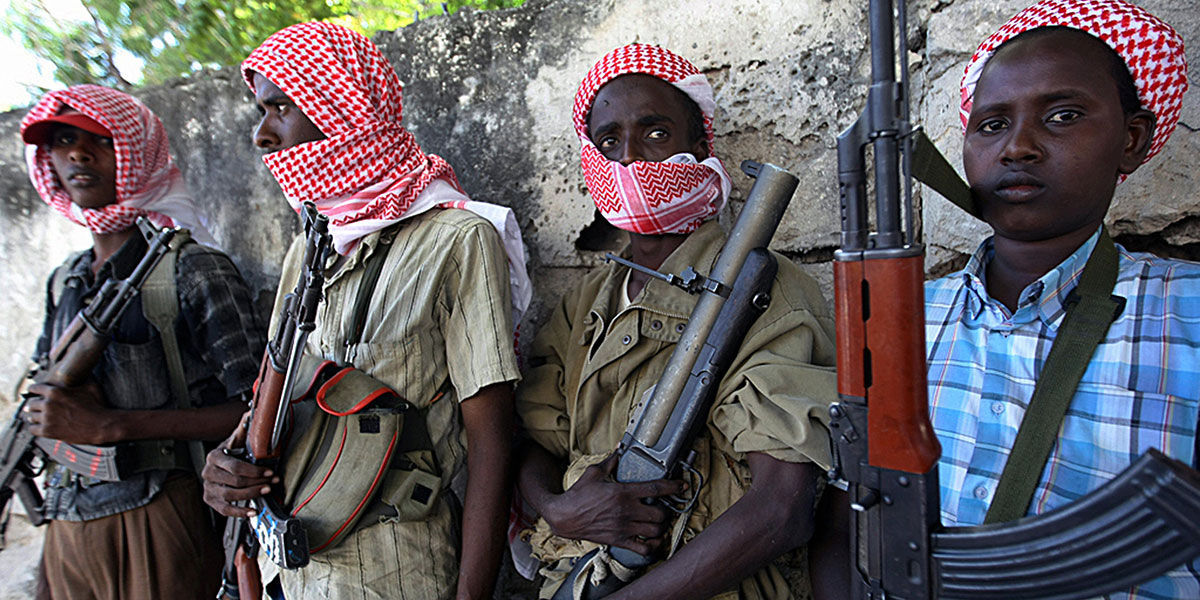The instability caused by these Islamist militants is weakening the government’s and humanitarian organisations’ responses to COVID-19 in Cabo Delgado. Currently, this province is noted as being the country’s epicentre of the pandemic, with 163 of a total of 409 positive cases (40%). Most of this number is associated with the high level of spread among workers from the TOTAL oil camp, on the Afungi peninsula, district of Palma. The Ministry of Health, with the support of TOTAL, has been undertaking tracking, which has helped to control transmission outbreaks in the Afungi peninsula for some time. However, there are already outbreaks beyond this perimeter, with several cases in the district of Palma and City of Pemba (capital of Cabo Delgado), and a strong possibility of moving to the level of community contamination chains.
The instability caused by Islamist militants is hindering the Mozambique government’s responses to COVID-19 in Cabo Delgado
Tweet
The double threat of armed attacks by insurgents and the spread of COVID-19 has had a significant impact on the population of Cabo Delgado, particularly in areas that have experienced military instability and in districts where war-displaced people are concentrated. The terrorist attacks started in 2017, but in 2020, the attacks became more violent and sophisticated, with insurgents attacking government institutions, people’s houses and banks while temporarily occupying the district centre of Quissanga and Mocímboa da Praia in northern Cabo Delgado.
The insurgents are currently retaliating in response to the latest Mozambican Defence and Security Forces’ actions against them. This is further aggravating the vulnerable situation and deterioration of the population’s living conditions – who are still recovering from the destruction caused by Cyclone Kenneth in 2019, leading them to constant movement in the search for security.
This continual movement increases the risk of contamination and spread of the virus between displaced people and benevolent families hosting them in cities. By way of example, in a radio interview, the Bishop of Pemba, Luís Francisco Lisboa, mentioned that currently “our main virus, in Cabo Delgado, is war” – referring to the fact that in the most affected areas, the priority of the people is security. Therefore, the population will not reduce their movement and stay at home, in obedience to the COVID-19 preventive measures recommended by the Presidential Decree of the State of Emergency, approved by the Mozambican Parliament in April.
In addition to human victims, the terrorist activities have led families from affected communities (from the districts of Mocímboa da Praia, Muidumbe, Macomia and Quissanga) to migrate to safer areas in southern Cabo Delgado and northern Nampula provinces. These displacements have put pressure on and exposed structural weaknesses in terms of the government’s capacity to guarantee public basic services, such as health assistance, to the most vulnerable families, particularly in areas of military instability and areas to which displaced people have relocated.
in spite of the government’s efforts through the National Institute of Natural Disasters (INGC) to create camps to accommodate displaced people, the increase in displaced people has resulted in overcrowding of the camps. In most of the camps, such as Metuge camp, which hosts about 10 000 people, the government faces the challenges of reduced capacity to provide shelter, food, water and healthcare. A quote from journalist Ricardo Machava on 31 May 2020 reveals that “[t]he government of the Namialo administrative post, in Nampula, acknoladged that the arrival of displaced people from Cabo Delgado poses a major challenge in providing supplies and controlling the COVID-19”.
In addition to the government’s actions, the role of community solidarity also stands out: families, particularly in the city of Pemba and other safe districts, have welcomed displaced families and victims of military insurgency into their homes. However, according to an alert by the International Organization for Migration, some of these hosted people are leaving, due to crowded conditions that can put them at greater risk of contamination.
The effects of military instability have also negatively affected the response actions of humanitarian organisations. On 7 April, insurgents attacked the United Nations World Food Programme (WFP) warehouse in Quissanga district, looting food products intended for the humanitarian support of vulnerable populations. This type of attack creates very challenging security conditions for WFP’s humanitarian assistance in Cabo Delgado, where it supports 95 000 needy people in the districts of Pemba, Metuge, Nangade, Macomia, Palma, Mueda and Montepuez. As a direct result of this, in March, the WFP withdrew its employees from the affected areas, leaving only a small group of “essential employees” to coordinate the support from the city of Pemba. The impact of this on the population was that from 1 to 25 April, humanitarian assistance of basic food baskets reached only 39 500 beneficiaries.
In the coming days, in addition to the intensification of displacement – as there is already open confrontation between the Islamic militants and government forces – and increasing new chains of contamination out of the Afungi peninsula, it is highly likely that COVID-19 will soon be spread by community transmission in Cabo Delgado. The level of spread is also influenced by the border and economic link with the province of Nampula, which has already been declared to have a pattern of community transmission.
At the Southern African Development Community (SADC) level, the Government of Mozambique has opened a window for cooperation and support by countries in the region by acknowledging that the Cabo Delgado conflict is caused by Islamic insurgents and that it requires coordinated action by SADC countries. In view of this, on 19 May in Harare, the SADC troika urged member states to support Mozambique in its fight against terrorism.
However, in addition to SADC’s security support interventions, because of its strategic location – on an international migration route from the Horn of Africa, especially from regions of military instability, to South Africa – and the porosity of its national borders, Mozambique needs other international humanitarian and political interventions to better respond to the risk of imported contamination of COVID-19.

